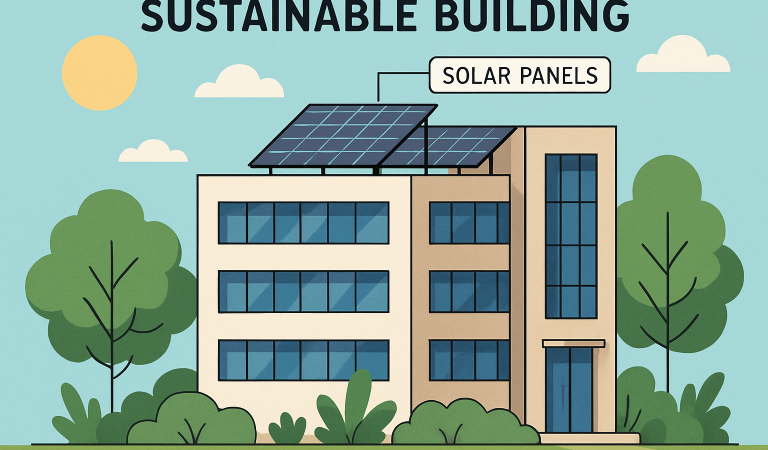Key Home Upgrades for Properties in Hurricane Zones

Living in a hurricane zone requires homeowners to proactively protect their properties. From high winds to heavy rainfall, homes in these areas face unique challenges. Upgrading your home to withstand these elements not only ensures the safety and security of your dwelling but can also significantly reduce potential damage and associated costs. In this blog, we will share essential upgrades that every homeowner in hurricane-prone areas should consider to fortify their homes against the wrath of nature.
One critical step is to protect your home’s foundation, as it plays a vital role in maintaining the structural integrity of your property. By addressing foundation vulnerabilities, you can reduce the impact of severe weather and safeguard your home from potential long-term damage.
Understanding Hurricane Risks
Before taking on any home improvement projects, fully understand the hurricane risks that pertain to your specific region. Different areas face varying levels of threat in terms of storm frequency and intensity. By identifying the typical paths, wind speeds, and types of damage your locale is prone to, you can make more informed decisions about which upgrades are necessary for your home. This understanding helps prioritize tasks and allocate resources more effectively, ensuring that you address the most critical vulnerabilities of your property first.
Impact-Resistant Features
Protecting your home from the destructive forces of hurricane winds and debris starts with fortifying points of entry: windows and doors. Impact windows play a pivotal role here. These windows are designed to withstand violent winds and flying debris, a common threat during hurricanes. They not only help keep the external elements at bay but also maintain the structural integrity of your home, preventing wind from entering and causing internal pressure buildups that can lead to significant damage. When selecting an impact window installation provider, choose a reputable company with experience in hurricane-prone markets to ensure the highest quality protection.
Strengthening Doors
In addition to windows, doors are critical vulnerabilities during a hurricane. If a door fails, it can allow wind to enter the home, increasing the pressure inside and potentially causing severe structural damage. Upgrading to impact-resistant doors is advisable to complement the security provided by impact windows. Look for doors that are specifically designed to handle hurricane conditions, including reinforced steel or fiberglass doors that meet local wind load requirements. These materials not only offer superior resistance to wind and debris but also add an extra layer of security against potential break-ins during the chaotic hurricane aftermath.
Roof Reinforcement
The roof of your house is your first line of defense against hurricanes and thus one of the most important areas to reinforce. Start by inspecting your roof for any signs of wear or damage and make necessary repairs as soon as possible. To bolster your roof’s ability to withstand high winds, consider upgrading to hurricane-rated shingles or tiles. Furthermore, the installation of hurricane straps or clips can be a wise investment. These metal fasteners strengthen the connection between your roof and the rest of your house, greatly reducing the risk of the roof peeling off during a storm.
Sealing and Waterproofing
Foundation waterproofing involves sealing the foundation and surrounding areas to prevent water from seeping into the structure. This process not only helps in keeping your basement dry but also strengthens the overall structural integrity of your home. Effective foundation waterproofing includes using specialized products like waterproof coatings, membranes, and drainage systems designed to channel water away from the foundation, ensuring that your home remains protected even during heavy rains or flooding events.
Interior basement waterproofing is a crucial step in preventing water damage. This process involves sealing the interior walls and floors of your basement to create a barrier against moisture. By effectively waterproofing the interior of your basement, you can protect your home from potential water damage and maintain a dry, safe living environment.
Water damage is among the most common and costly consequences of hurricanes. To safeguard your home, ensure that all windows, doors, and other openings are properly sealed against water ingress. Use high-quality sealants and weather-stripping to block any gaps that could allow water to enter. In addition, consider waterproofing your home’s foundation, basement, and any crawl spaces. This might include applying waterproof coatings or membranes that can prevent water from seeping through walls and floors, thereby mitigating the risk of flooding and the subsequent growth of mold and mildew, which can further damage your home and health.
Garage Door Reinforcement
Garage doors are particularly susceptible to hurricane damage due to their large size and relatively light construction. A failing garage door under hurricane conditions not only poses a risk to vehicles and stored items but also opens up a large area of your home to wind and water damage. Reinforcing your garage door can involve installing braces that support the door against wind pressures or replacing it with one that is specifically designed to withstand hurricanes. Look for garage doors rated for high wind resistance and ensure they are properly installed by professionals.
Landscaping and Exterior
Your home’s landscaping can either act as a protection or a risk during a hurricane. Strategically placed trees and shrubs can shield your home from high winds and flying debris, but poorly maintained vegetation can become airborne projectiles that threaten your home and safety. Regularly trim trees and bushes, and secure or remove loose items from your yard, such as patio furniture, gardening tools, and decorative elements, before a hurricane approaches. Consider using native plants that are adapted to local weather conditions and more likely to withstand stormy weather.
Backup Power Solutions
Electricity outages are a common issue during hurricanes, which can make living conditions challenging. Installing a backup power system, such as a generator or solar panels with battery backup, can keep critical appliances running during power outages. This setup can ensure that refrigeration, lighting, and HVAC systems continue to operate, maintaining comfort and safety until regular power is restored. Be sure to install and maintain your backup power solutions according to manufacturer instructions and local codes.
Flood Barriers
For homes in low-lying areas or flood zones, having flood barriers can greatly aid in preventing water from entering the home. Sandbags, flood panels, or built-in flood doors can be effective solutions. These barriers can be deployed quickly in anticipation of a storm and are particularly important for basement protection or homes with ground-level entry points. Properly installed, they can significantly reduce the amount of water that enters your property, mitigating flood damage.
Insurance Review
Having the right insurance coverage is essential in hurricane zones. Review your homeowner’s insurance policy to ensure it includes coverage for hurricane damage, including winds and flooding, which are often covered under different policies. Understanding your coverage limits and ensuring they match the value of your property and possessions can prevent unexpected financial burdens after a storm. It’s also wise to document your home and belongings with photos or videos for potential insurance claims.
Conclusion
Preparing your home for hurricanes is an essential process that involves multiple upgrades and strategic planning. From reinforcing the structure and securing the exterior to setting up backup power and reviewing your insurance, each step plays a vital role in protecting your property and ensuring your family’s safety. While these investments may require upfront costs, the peace of mind and potential savings from avoided damage can make them well worth it. The key to effective hurricane preparation is to start early—well before any storm warnings—allowing ample time to implement these critical measures. By taking proactive steps now, you can secure your home against the most severe weather and minimize the impact of hurricanes on your property and loved ones.




![Pyntekvister: A Simple Guide to Nordic Branch Decorating [2025]](https://thetophints.com/wp-content/uploads/2025/11/images-13.jpg)
